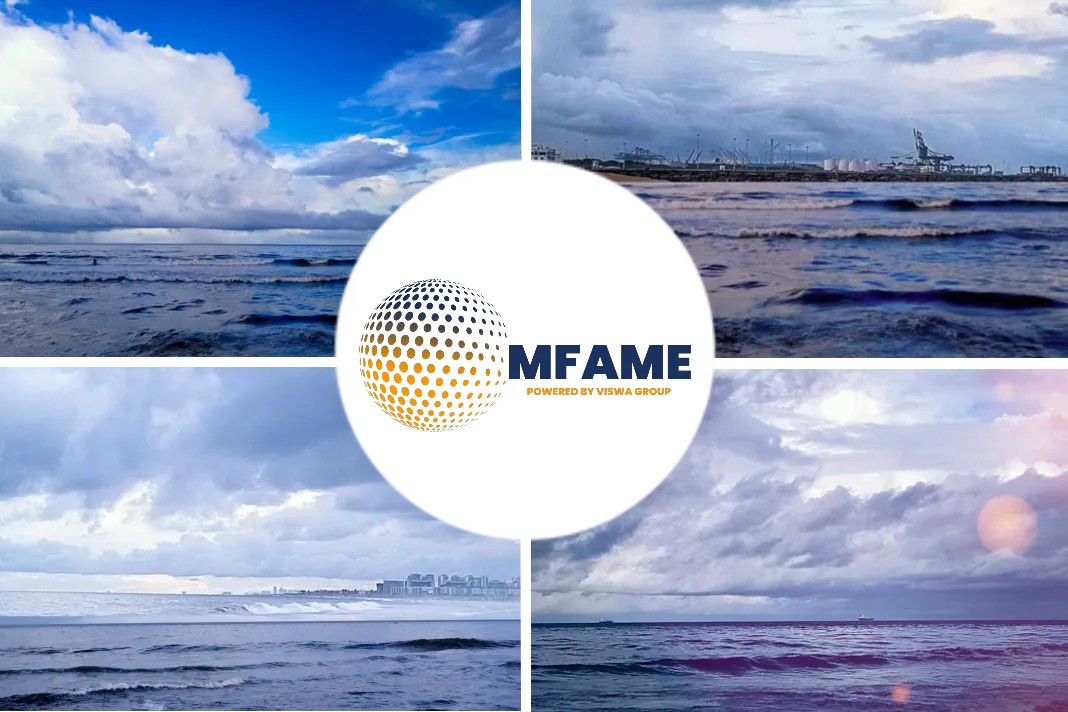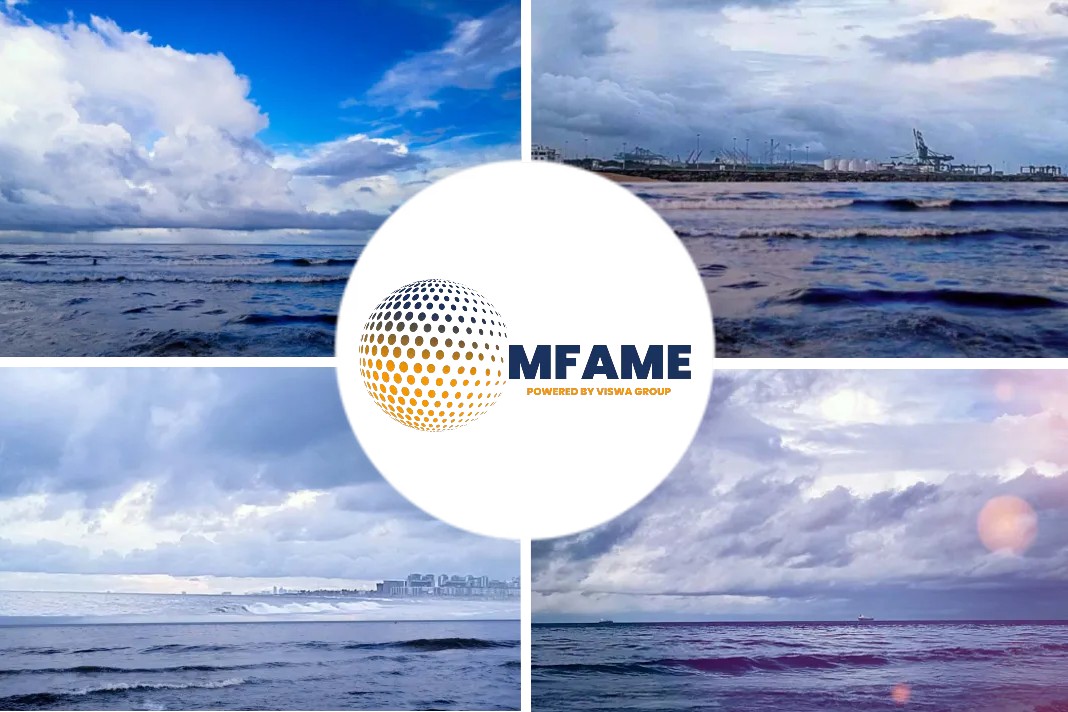The Rise of E-commerce has changed the way logistics function in the shipping industry. More and more shipping companies are going for supply chain operations. To understand this phenomenon the latest issue of the Ship Technology magazine has an article on this where Chris Lo speaks to David Jinks, Head of Consumer Research at the online parcel comparison platform ‘PARCEL HERO’.
Here’s an excerpt from that article.
Breaking Down Global Trade Barriers
In the last two decades has helped to break down the traditional barriers of global trade. Increasingly integrated supply chains, coupled with the rise of e-commerce giants such as Amazon and Alibaba, have served to meet soaring demand as internet access continues to skyrocket worldwide and a burgeoning global middle class emerges with disposable income and a taste for foreign-made products.
Today, according to Internet Retailer, more than 15% of total retail sales are made online, with global e-commerce sales growing 18% year-on-year in 2018 to a value of $2.86tn, far outpacing the general growth of retail sales. As well as consumer goods, e-commerce is having a huge impact on business-to-business sales, which have been facilitated by an enormous new trade flow from manufacturing powerhouse China to the West.
The Digital Future of Shipping
It’s clear that digital is the future, and this hasn’t escaped the notice of the maritime industry. While international shipping has historically relied on manual systems and human interaction to move goods from A to B, the broader trend towards digital business models and process automation is changing the face of global logistics, and technological stragglers risk being left out in the cold.
The predominance of the likes of Alibaba and Amazon over modern logistics, and their increasing tendency to take control of their own delivery processes, has already prompted responses from the big shipping firms. In 2017, shipping firms A.P. Moller Maersk, CMA CGM and Evergreen Line partnered with Alibaba to offer direct booking of maritime cargo space for customers using the company’s OneTouch service.
Maersk and its ilk are already positioning themselves to interact more efficiently with the new kings of global retail, but will other parts of the industry be left behind in the e-commerce area? Online parcel comparison platform ParcelHero’s head of consumer research David Jinks lends his insight.
CHRIS LO: YOU’VE DESCRIBED THE RISE OF E-COMMERCE AS “A CHANGE IN GLOBAL SUPPLY CHAINS EVEN GREATER THAN THE INTRODUCTION OF CONTAINERS IN THE 1950S”. COULD YOU ELABORATE ON THAT?
DAVID JINKS: Supply chains are changing entirely based on the fact that, now, China is the big powerhouse of products and the components that go into products. It’s a whole new flow, basically, from China to the West, that’s been created since the introduction of e-commerce.
But at the same time, e-commerce doesn’t work like traditional supply chain networks. It works directly. You’re on the website, you buy something, that order goes through, and what Amazon and Alibaba want is a smooth supply chain from beginning to end, where they’re not having to worry about booking things separately on to ships, and container loads and things like that – they want it to be automated as much as possible.
So they really are spending a lot on logistics to build up those supply chains. But equally they want them to be automated as much as possible; they don’t want anything manual or human intervention to get in the way of this China-to-the-West flow. So it makes sense for them to be as much in control of their own shipping as possible.
CHRIS LO: ARE THE LIKES OF AMAZON AND ALIBABA INCREASINGLY MANAGING THEIR OWN SUPPLY CHAINS AND DELIVERY SERVICES?
DAVID JINKS: Amazon owns Beijing Century Joyo Courier Service. That’s actually a Chinese subsidiary of Amazon. It’s a freight forwarding service, and they’re using that between China and the US. So they’re in the actual maritime shipping game, basically.
As for Alibaba, they’re really committed. They’ve got this thing called OneTouch. That automatically links in with Maersk and with CMA CGM. So those two really huge container shipping organisations, they now have a mechanism whereby the retailers link in with the Alibaba OneTouch platform, do it all automatically, and it’s all connected up.
If you’re not part of that chain, then you’re not really in the game as far as bulk container shipping of different products from China is concerned. You’re getting bypassed. The boss of Maersk [Soren Skou] said, “Amazon is a threat if we don’t do a good job for them. If we don’t our job well, then there’s no doubt that big, strong companies like Amazon will look into whether they can do better themselves.” So they recognize the issue, that either they’re joining in with Amazon’s automated stuff and trying to build themselves as much into Amazon’s supply chain as they can, or they’re going to be left behind.
Of course, it’s only one part of the market. I don’t think we’re talking about bulk stuff or fluids [transport] in the same way, but for one key part of the market, it’s really getting like that. And how long is it until the way we actually buy and sell bulk cargo changes? How long is it before people want all of that in integrated supply chains as well?
CHRIS LO: DO YOU THINK THE MARITIME INDUSTRY’S MIDDLEMEN, SUCH AS FREIGHT FORWARDERS AND SHIPPING AGENTS, WILL BE HIT HARDEST AND EARLIEST BY THE SUPPLY CHAIN CHANGES THAT E-COMMERCE IS BRINGING?
DAVID JINKS: Yeah, absolutely. Old-school freight forwarders who book things by fax or on the phone, that’s no part whatsoever of this Amazon integrated supply chain, where you press a button on the computer and it goes all the way through. I think that’s the problem for your average freight forwarder, shipping agents and so on – how do you manage to get a bit of this action? How do you build yourself into this if you’re an independent freight forwarder? I don’t know the answer to that.
CHRIS LO: IN THE COMING YEARS, HOW DO YOU SEE THE GROWING TREND OF AUTOMATION TRANSFORMING MARINE LOGISTICS?
DAVID JINKS: Increasingly, it’s an automated world. You’ve got some interesting things going on. They keep threatening the introduction of autonomous ships that will be ploughing across the seas virtually unmanned. Well, they sound far-fetched, but gosh, they would fit in very nicely with this Amazon model of virtually no humans. There’s virtually never a human in sight with some of these supply chains.
Maersk has got this virtual assistant called Captain Peter; it’s a remote container management platform. If you’re a big retailer and you’re expecting your container to come along, you can just log into that and you can see where it is, the temperature of the items, when the estimated arrival time is. So Maersk, by offering that extra integration – I think it’s only a trial at the moment – linked into Amazon, that’s a great potential offering.
If you go way back to the introduction of containerisation, when the dockers saw the first container ship. There was a good quote from a union official at the time, they asked him what he thought and he said, ‘I’d like to sink that son of a bitch’. He saw how quickly that would impact on their industry. In fact, it absolutely revolutionised how quickly goods could be turned over in ports and how many people were needed to do that.
I think we’re facing the same kind of thing today. This is a big transformation, and it doesn’t leave a lot of room for the average human, but it does mean that all the goods we get are cheap, and they arrive on time.
Did you subscribe to our daily newsletter?
It’s Free! Click here to Subscribe!
Source: Ship Technology















